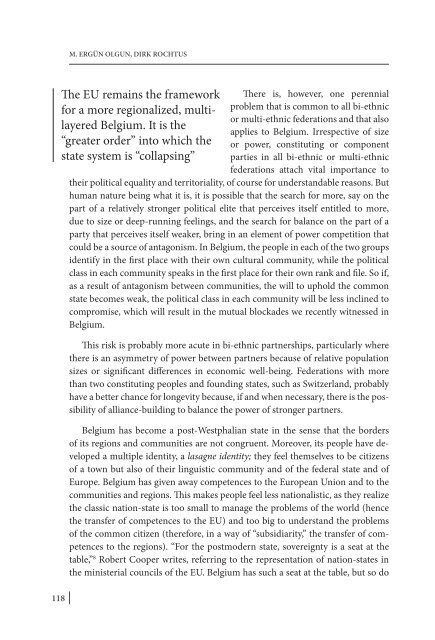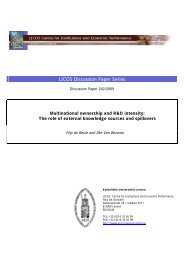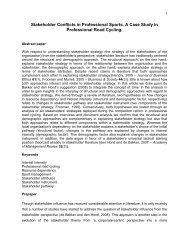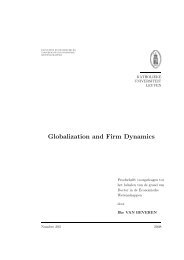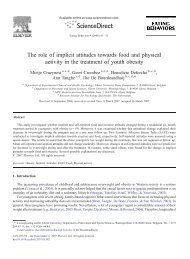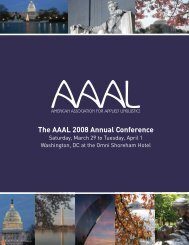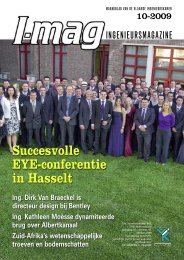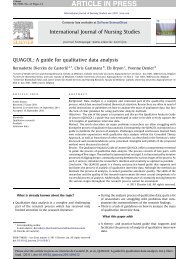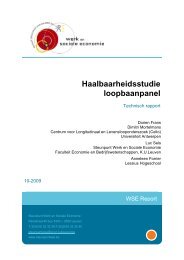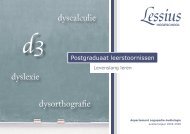View/Open - Lirias@Lessius
View/Open - Lirias@Lessius
View/Open - Lirias@Lessius
You also want an ePaper? Increase the reach of your titles
YUMPU automatically turns print PDFs into web optimized ePapers that Google loves.
118<br />
M. ERGÜN OLGUN, DIRK ROCHTUS<br />
The EU remains the framework<br />
for a more regionalized, multilayered<br />
Belgium. It is the<br />
“greater order” into which the<br />
state system is “collapsing”<br />
There is, however, one perennial<br />
problem that is common to all bi-ethnic<br />
or multi-ethnic federations and that also<br />
applies to Belgium. Irrespective of size<br />
or power, constituting or component<br />
parties in all bi-ethnic or multi-ethnic<br />
federations attach vital importance to<br />
their political equality and territoriality, of course for understandable reasons. But<br />
human nature being what it is, it is possible that the search for more, say on the<br />
part of a relatively stronger political elite that perceives itself entitled to more,<br />
due to size or deep-running feelings, and the search for balance on the part of a<br />
party that perceives itself weaker, bring in an element of power competition that<br />
could be a source of antagonism. In Belgium, the people in each of the two groups<br />
identify in the first place with their own cultural community, while the political<br />
class in each community speaks in the first place for their own rank and file. So if,<br />
as a result of antagonism between communities, the will to uphold the common<br />
state becomes weak, the political class in each community will be less inclined to<br />
compromise, which will result in the mutual blockades we recently witnessed in<br />
Belgium.<br />
This risk is probably more acute in bi-ethnic partnerships, particularly where<br />
there is an asymmetry of power between partners because of relative population<br />
sizes or significant differences in economic well-being. Federations with more<br />
than two constituting peoples and founding states, such as Switzerland, probably<br />
have a better chance for longevity because, if and when necessary, there is the possibility<br />
of alliance-building to balance the power of stronger partners.<br />
Belgium has become a post-Westphalian state in the sense that the borders<br />
of its regions and communities are not congruent. Moreover, its people have developed<br />
a multiple identity, a lasagne identity; they feel themselves to be citizens<br />
of a town but also of their linguistic community and of the federal state and of<br />
Europe. Belgium has given away competences to the European Union and to the<br />
communities and regions. This makes people feel less nationalistic, as they realize<br />
the classic nation-state is too small to manage the problems of the world (hence<br />
the transfer of competences to the EU) and too big to understand the problems<br />
of the common citizen (therefore, in a way of “subsidiarity,” the transfer of competences<br />
to the regions). “For the postmodern state, sovereignty is a seat at the<br />
table,” 8 Robert Cooper writes, referring to the representation of nation-states in<br />
the ministerial councils of the EU. Belgium has such a seat at the table, but so do


